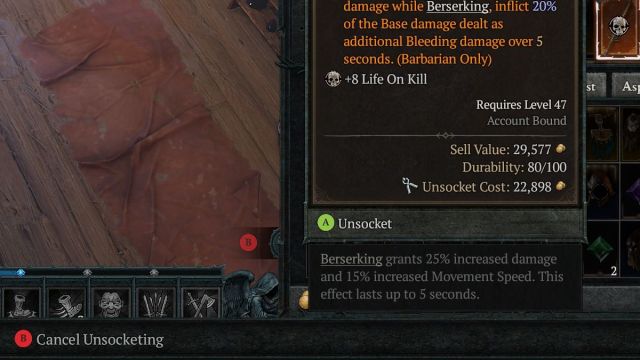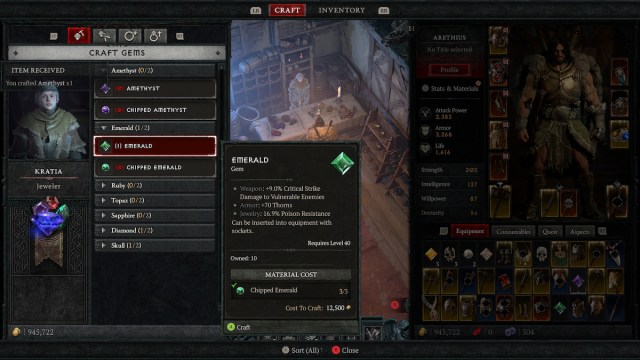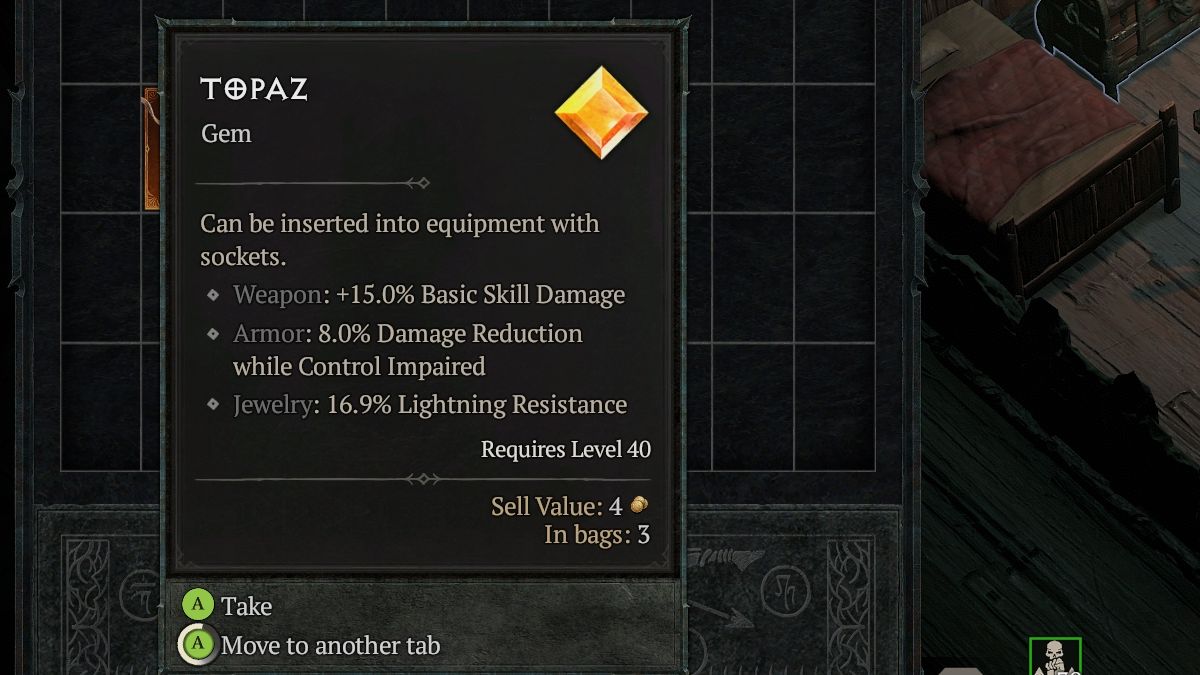Use gems to overcome tough obstacles
In Diablo 4, enemies will scale up to your current level. While you can be underleveled for certain types of content, you can’t ever become overleveled. Because of this, overcoming a tough obstacle often involves leaning into other sources of power. That’s where Gems come into play.
As you find loot in Diablo 4, you may notice one or more empty circles on the icons of certain pieces of equipment. This means you can slot Gems onto them. You’ll naturally find Gems while you play, and at any point you can slot them onto any applicable equipment. This will give you gear powerful bonuses that can easily turn the tide of battle. For example, an Emerald can give a weapon extra Critical Strike damage against Vulnerable enemies, or it can add Thorns damage to a piece of armor.
Of course, gems come with a couple caveats. Though equipping a gem is easy, unsocketing a gem from a piece of equipment costs gold. Additionally, getting the most powerful Gems potentially involves sacrificing dozens of lesser quality Gems. All these systems will become apparent once you unlock the Jeweler.

How to unsocket Gems in Diablo 4
Once you progress far enough, you’ll unlock the Jeweler in every major hub city of Diablo 4. Here you can select any piece of gear with a Gem attached to it and remove it for a small fee. I highly recommend keeping all your Gems, even if you don’t think you need them anymore.
That said, you might not want to bother unsocketing your Gems. There’s actually an easier way to get your Gems back that won’t cost you any Gold, especially if you don’t want the piece of gear the jewelry is attached to.
You can salvage gear in Diablo 4 to get your Gems back
That’s right, you can recover your slotted gems by simply salvaging the gear they’re augmenting! This will naturally cost you the equipment in question, but you’ll need a ton of materials from salvaging anyway. In other words, you should almost always use Gems on your equipment to boost your power.
That said, if you still want to keep a piece of gear but want to slot its gem(s) into something else, then you’ll have to cough up that unsocket fee for the Jeweler. It’s nice to have this option if you swap builds often, just watch out for your gold!

How crafting Gems works in Diablo 4
Gems come in a few varieties. Throughout your adventure, you’ll notice words like “Chipped” next to the Jewelry you find. Obviously, the less broken your Gem is, the more power it will pack. This is where crafting comes into play.
By visiting the Jeweler, you can take multiple gems of a certain condition and combine them into a single stronger Gem. This way, even the worst Gem you find can become useful. Unless you specifically need multiple copies of a certain type of Gem, I recommend fully crafting your Gem collection as much as you can. I personally like to put my Gems in storage, and when I’m looking to upgrade my gear, I craft as much Jewelry as I can before deciding which equipment I want to upgrade.
As a fun tip, you can craft Gems even if they’re in your storage. This will save you the hassle of constantly taking your Gems out for upgrades!
The Gem system will look familiar to longtime Diablo fans, but it’s surprisingly robust all the same. As you progress further into the Diablo 4 postgame, you can even opt to add Gem sockets to your equipment in exchange for rare materials. It’s a grind for sure, but the advantage you’ll gain is well worth the effort. Happy collecting!





Published: Jun 14, 2023 09:53 am